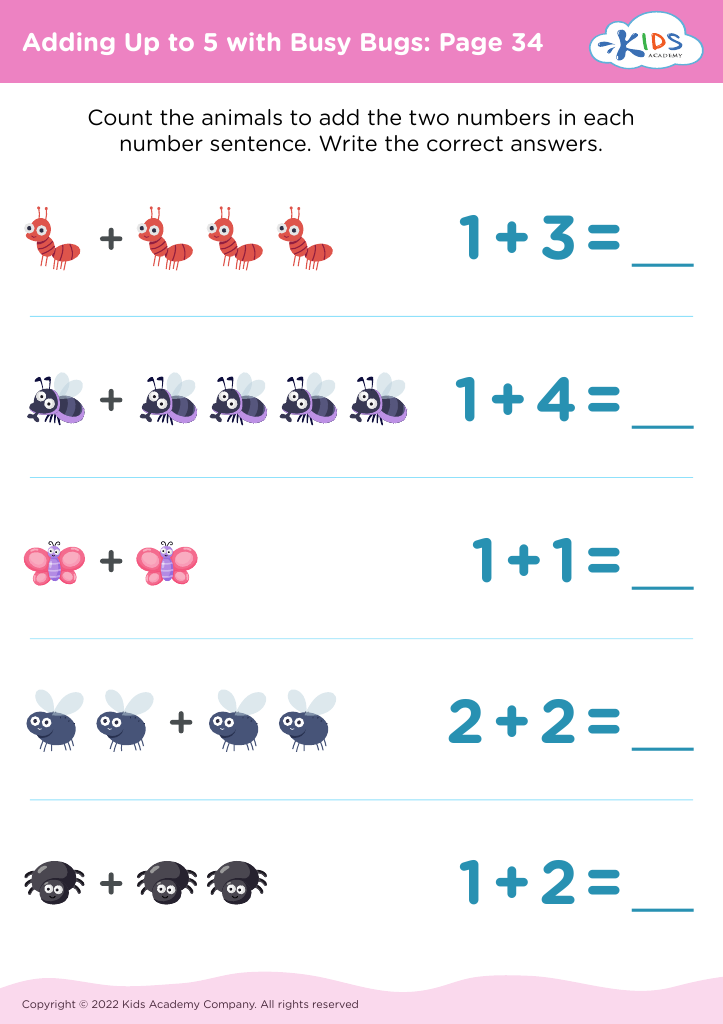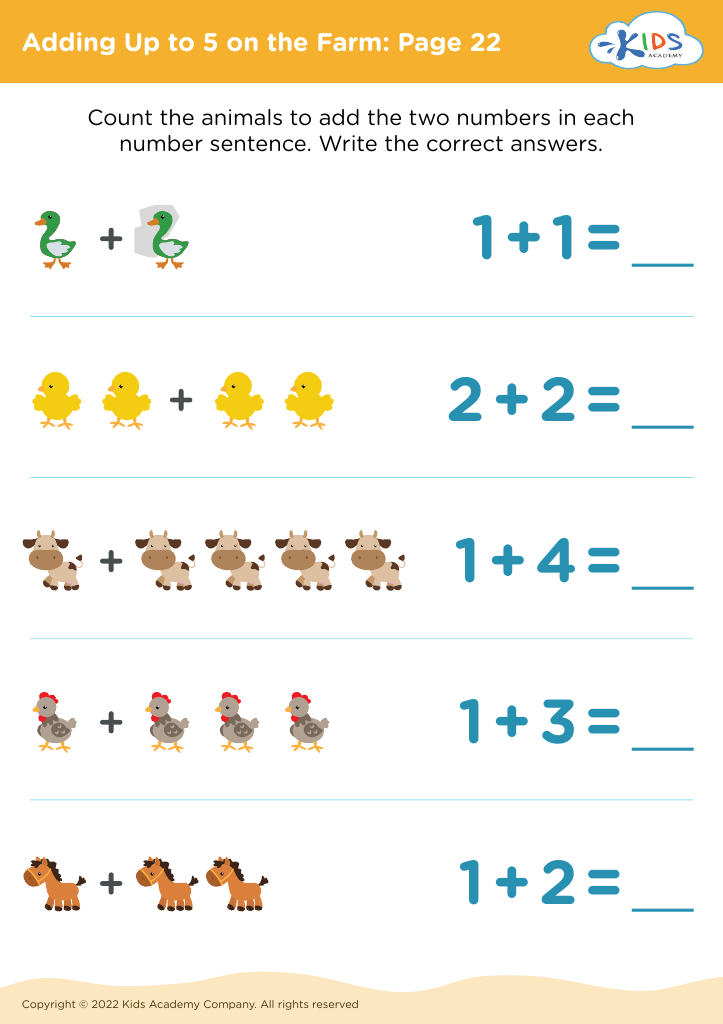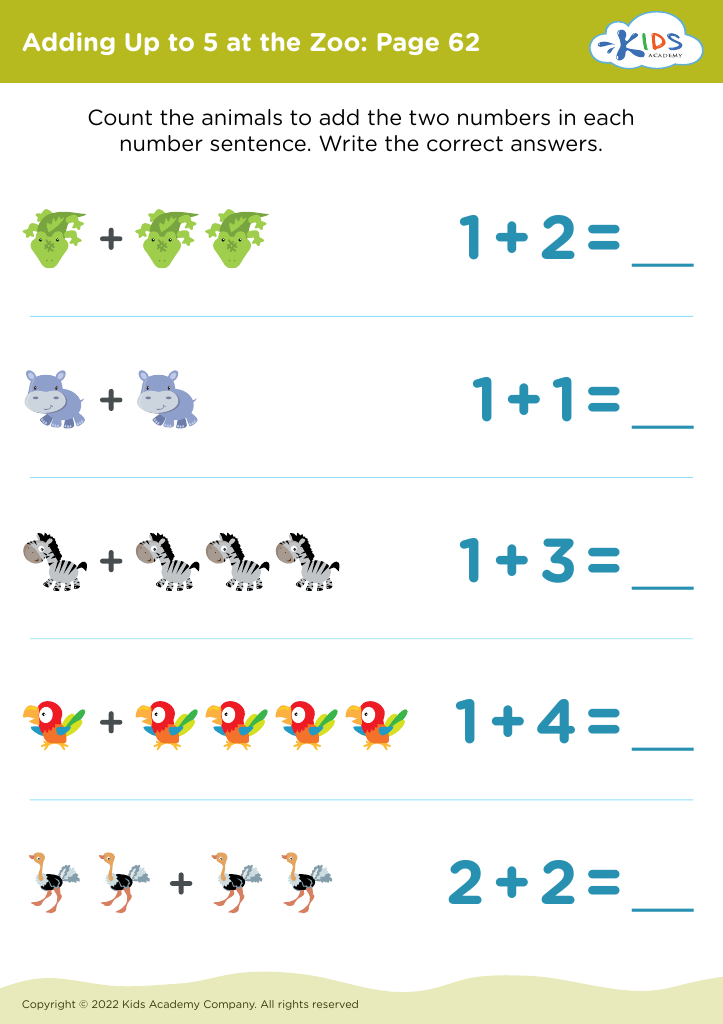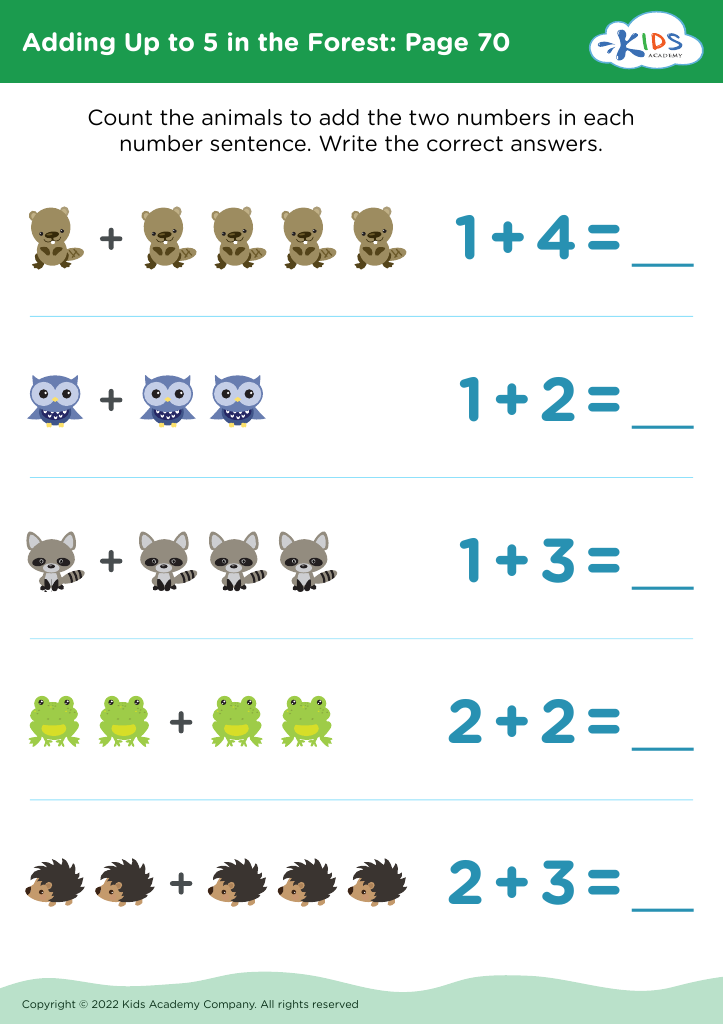Enhancing focus Math Worksheets for Ages 3-6
4 filtered results
-
From - To
Boost your child's concentration and math skills with our Enhancing Focus Math Worksheets designed for ages 3-6. These engaging worksheets are specifically created to capture young learners' attention while introducing fundamental math concepts in a fun and interactive way. Through activities like counting, number recognition, and simple arithmetic, children develop essential focus and problem-solving abilities. Perfect for preschool and kindergarten students, our high-quality worksheets ensure an enjoyable learning experience that nurtures a love for math. Download now and watch your child's focus and math confidence grow!
Enhancing focus on math for children ages 3-6 is crucial because this stage lays the foundation for their future academic and cognitive development. Early childhood is a period of rapid brain development when children’s cognitive skills are highly malleable, making it an opportune time to introduce fundamental mathematical concepts. Early exposure to math helps children develop critical thinking, problem-solving, and analytical skills, which are essential not only for math but for learning across all subjects.
Mastering basic math concepts, such as counting, recognizing numbers, and understanding simple addition and subtraction, enhances a child's confidence and prepares them for the more complex math they will encounter in later grades. Furthermore, early math proficiency is a strong predictor of later academic achievement and has been linked to better performance in science, technology, engineering, and math (STEM) fields.
For parents, engaging with their children in math-related activities strengthens the parent-child bond and allows parents to observe and support their child’s learning progression. For teachers, fostering a positive and engaging math environment in early education sets a solid foundation, ensuring children view math as an accessible and enjoyable subject. In sum, prioritizing early math skills supports holistic development, stimulates intellectual curiosity, and sets the stage for lifelong learning.




















